[Newsbits] 24.02.2024: Positronium, Medaram Jatara Festival & More
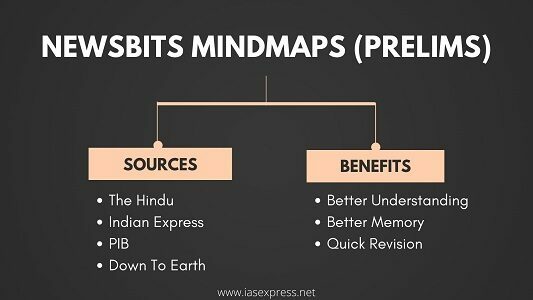
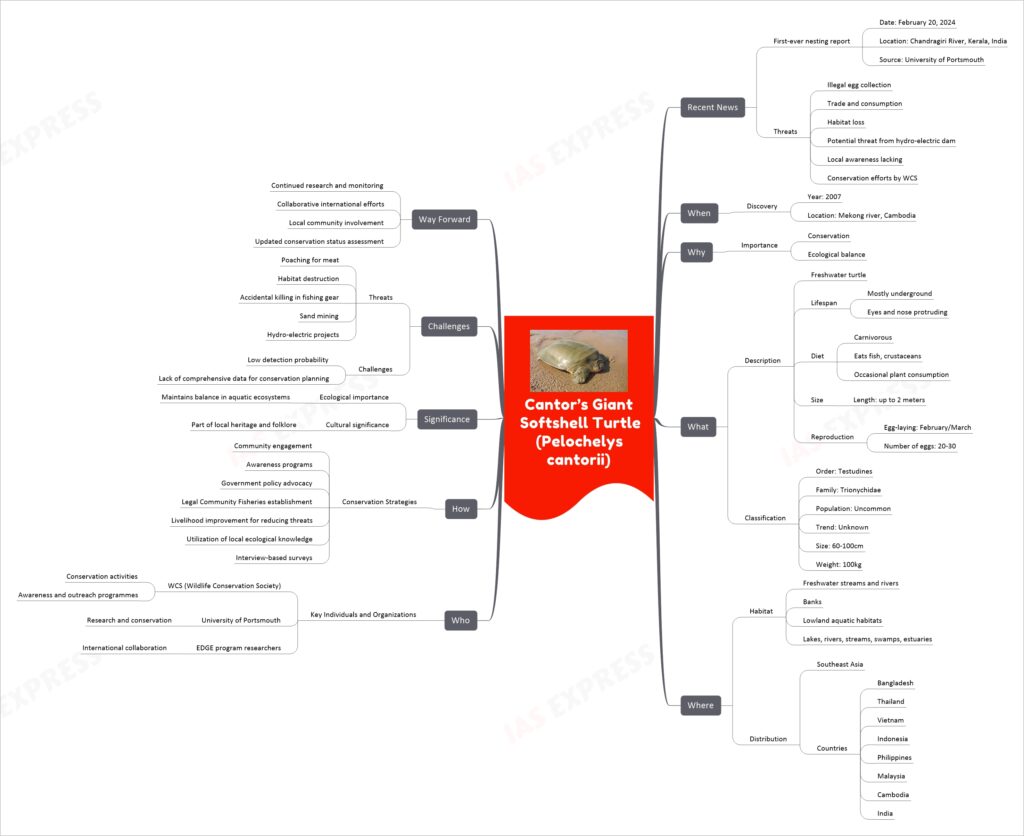
Cantor’s giant softshell turtle, scientifically known as Pelochelys cantorii, is a fascinating and unique species of freshwater turtle native to Southeast Asia. These turtles are known for their distinctive characteristics, spending most of their life buried underground with only their eyes and nose visible. They are primarily carnivorous, feeding on fish and crustaceans, and are known for their powerful bite. The species faces various threats, including illegal egg collection, habitat loss, and accidental killing, which have led to a decline in their population. Recent efforts in conservation, such as those by the Wildlife Conservation Society (WCS) and the University of Portsmouth, focus on community engagement and awareness programs to protect these turtles. The species’ presence across multiple countries in Southeast Asia highlights the need for collaborative international conservation efforts.
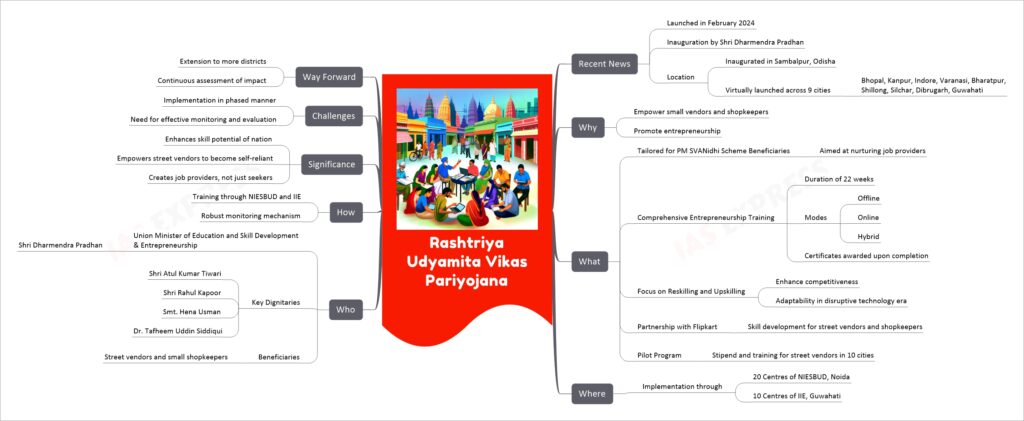
The Rashtriya Udyamita Vikas Pariyojana, initiated in February 2024, represents a crucial step towards empowering street vendors and small shopkeepers in India. This project, aligned with the Skill India Mission, focuses on providing comprehensive entrepreneurship training to beneficiaries of the PM SVANidhi Scheme. It aims to reskill and upskill the workforce, particularly in the informal sector, to enhance their competitiveness in a technologically evolving job market. The program, inaugurated by Shri Dharmendra Pradhan, emphasizes practical learning through a blend of offline, online, and hybrid training modes. A significant partnership with Flipkart underlines the program’s commitment to practical skill development. The initiative is not just about skill enhancement but also about nurturing a culture of entrepreneurship in India, marking a shift towards creating job providers rather than mere job seekers.
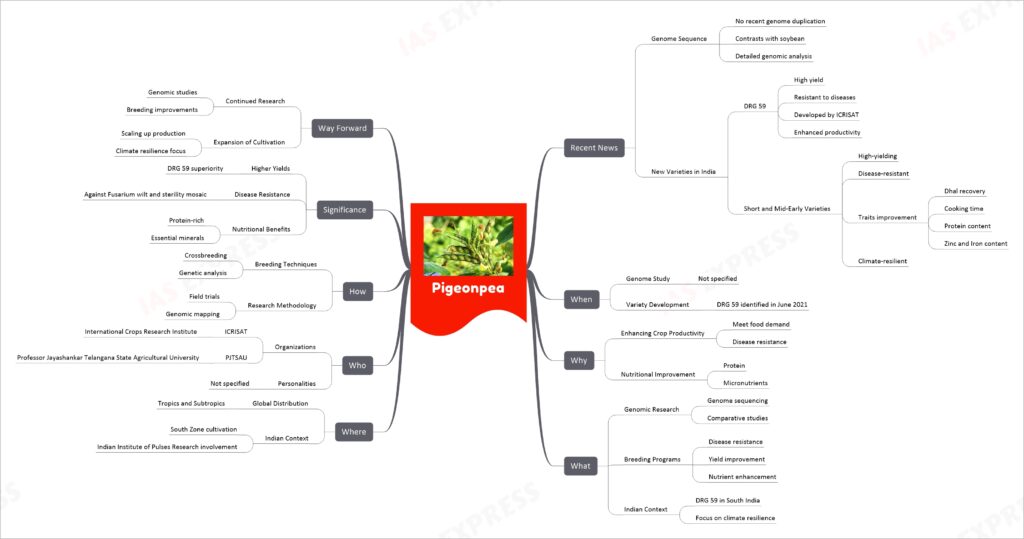
Pigeonpea, also known as Cajanus cajan, is an important legume crop, particularly in tropical and subtropical regions. Originating in India and widely cultivated in Africa, pigeonpea is a nutritious and protein-rich food source. The crop is a perennial woody shrub but is mostly grown as an annual for its seeds. It is classified into varieties based on maturity and floral characteristics, with different types suited to varying climatic and soil conditions. Pigeonpea cultivation involves specific practices such as intercropping, appropriate seed rate and spacing, and tailored fertilizer application. Harvesting generally occurs from January to February, followed by specific threshing, drying, and storage techniques. Pigeonpea plays a significant role in subsistence agriculture, providing essential nutrition and economic benefits, especially for resource-poor farmers.
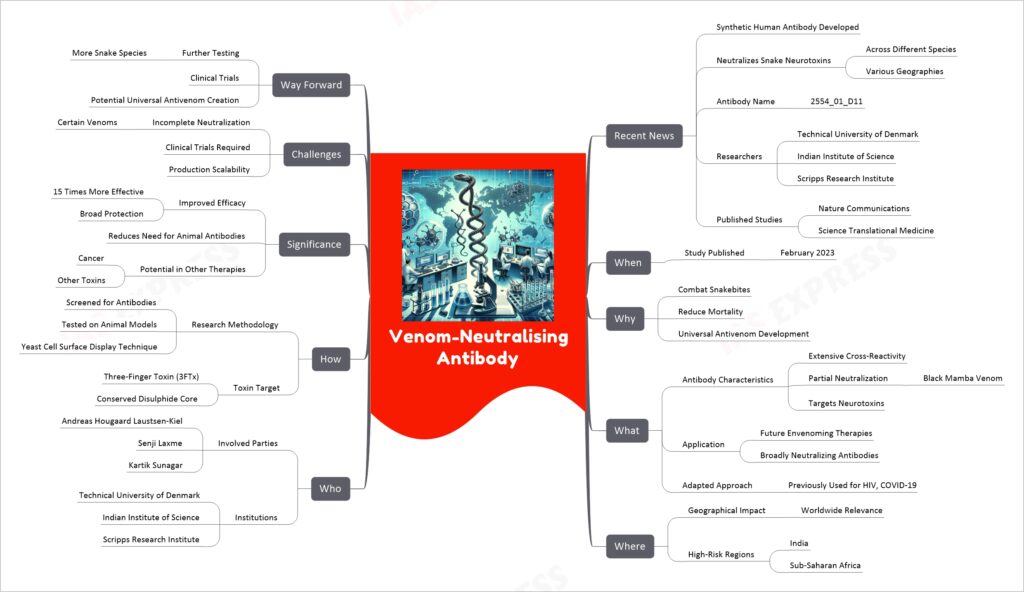
Venom-neutralising antibodies represent a groundbreaking advancement in the field of antivenom research. Scientists have developed a synthetic human antibody, 2554_01_D11, capable of neutralizing snake neurotoxins from various species globally. This development, led by researchers from the Technical University of Denmark, Indian Institute of Science, and Scripps Research Institute, was published in Nature Communications and Science Translational Medicine. The antibody, adapted from methods used in HIV and COVID-19 research, targets a conserved region in the toxin, showing potential for broad protection against different snake venoms. This innovation is a significant step towards creating a universal antivenom, offering hope for more effective treatments against snakebites, a major health concern in regions like India and sub-Saharan Africa.
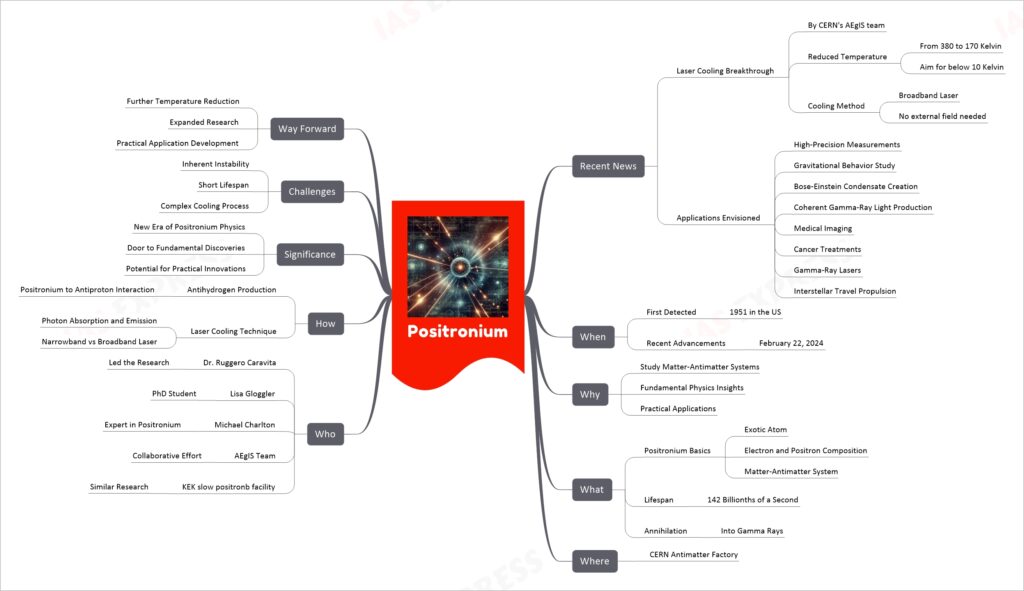
Positronium is an exotic atom composed of an electron and its antimatter counterpart, the positron. Recently, significant progress has been made in its study, particularly in the field of laser cooling, led by teams at CERN’s AEgIS experiment and other global institutions. By cooling positronium atoms with laser light, researchers have significantly reduced their temperature, enabling more precise measurements and research. This breakthrough not only advances fundamental physics, understanding matter-antimatter interactions, but also opens possibilities for practical applications like medical imaging, cancer treatment, development of gamma-ray lasers, and even interstellar travel propulsion. Despite challenges like its inherent instability and short lifespan, positronium research stands at the brink of exciting new discoveries and applications.
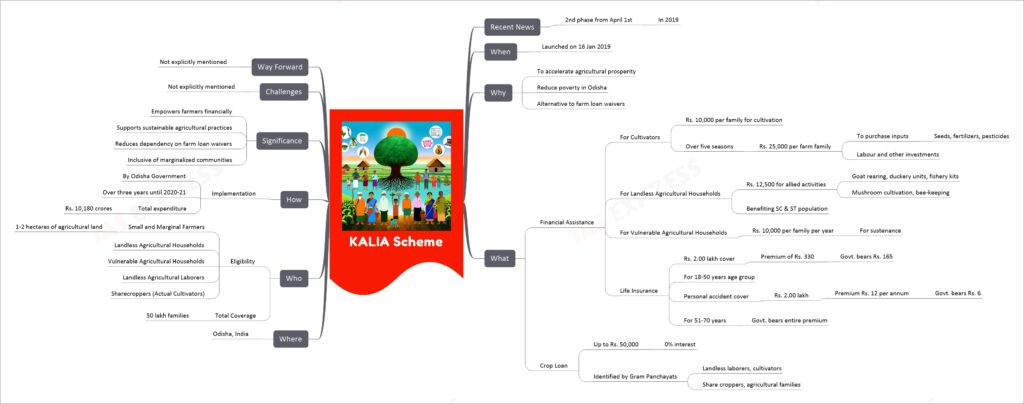
The KALIA (Krushak Assistance for Livelihood and Income Augmentation) Scheme is an initiative by the Odisha Government, launched in January 2019. It aims to enhance agricultural prosperity and reduce poverty in Odisha. The scheme provides financial assistance to cultivators, landless agricultural households, and vulnerable agricultural households. Benefits include Rs. 10,000 per family for cultivation, Rs. 25,000 per farm family over five seasons for purchasing inputs, Rs. 12,500 for allied activities like goat rearing and fishery kits, especially benefiting the SC & ST population, and Rs. 10,000 per family per year for vulnerable agricultural households.
The scheme also includes a life insurance cover of Rs. 2 lakh and a personal accident cover of the same amount, with premiums partially or fully covered by the government. Additionally, it offers crop loans up to Rs. 50,000 at 0% interest. It’s designed to be inclusive, covering small and marginal farmers, landless agricultural laborers, and sharecroppers, with a total coverage of 50 lakh families.
The KALIA scheme represents a significant step towards empowering farmers, promoting sustainable agricultural practices, and reducing dependency on farm loan waivers, with a focus on including marginalized communities in its benefits. The total expenditure over three years until 2020-21 is estimated at Rs. 10,180 crores. The scheme is seen as a viable alternative to farm loan waivers and aims to directly address the issues faced by farmers in Odisha.
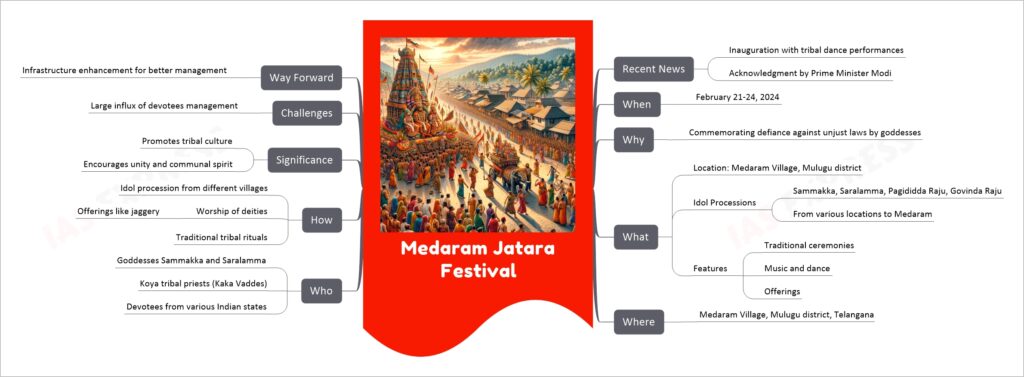
The Medaram Jatara Festival, held from February 21-24, 2024, in Telangana, is a significant tribal event commemorating the valor of the goddesses Sammakka and Saralamma. It involves processions of deities’ idols and traditional rituals, drawing a vast number of devotees. The festival promotes tribal heritage and unity, though it faces challenges in managing the huge crowds. Prime Minister Modi’s acknowledgment highlights its cultural importance.
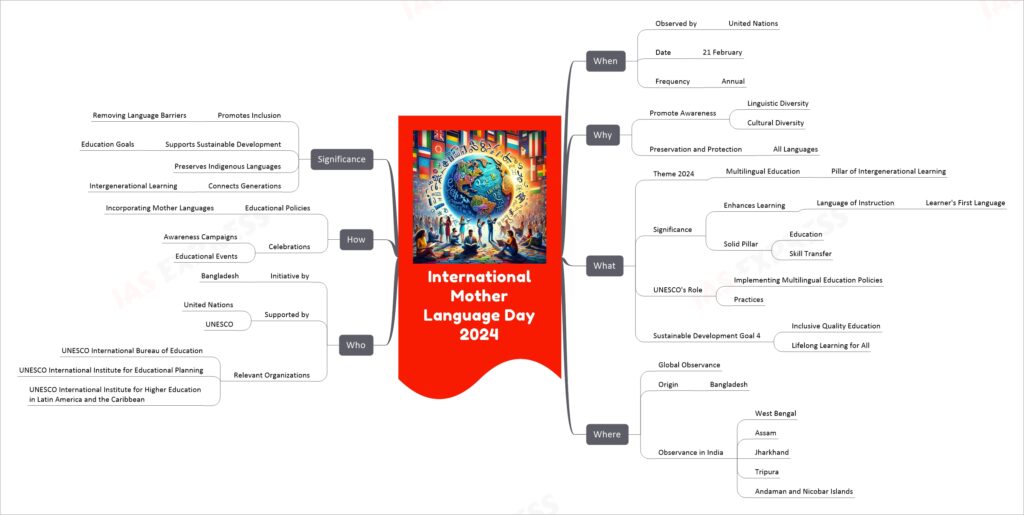
International Mother Language Day, observed annually on February 21, is a global event aimed at promoting linguistic and cultural diversity, as well as multilingualism. The theme for 2024 focuses on multilingual education as a cornerstone of intergenerational learning. The day emphasizes the importance of mother languages in enhancing learning and education, underlining the necessity of implementing policies that integrate learners’ native languages in educational systems. Initially proposed by Bangladesh and supported by UNESCO and the United Nations, this observance underscores the significance of preserving and protecting all languages, thereby promoting inclusive education and supporting sustainable development goals.
If you like this post, please share your feedback in the comments section below so that we will upload more posts like this.
